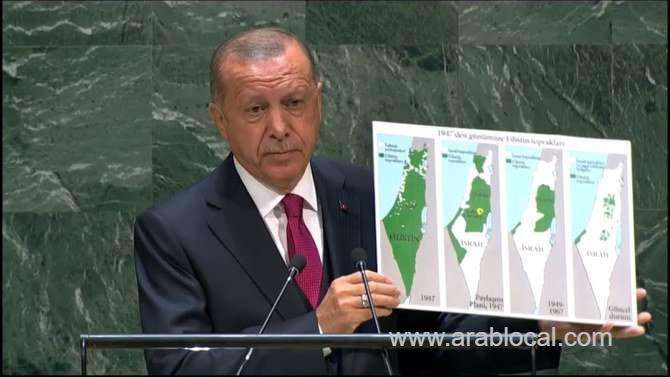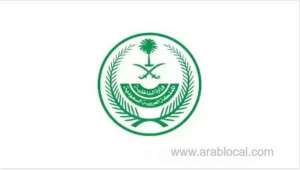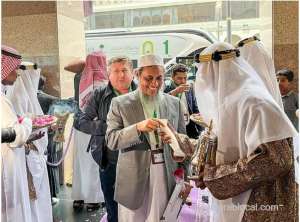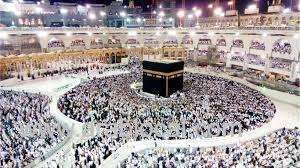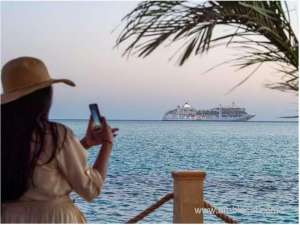Turkey has announced its candidacy for the 75th UN General Assembly’s (UNGA) presidency for the 2020-2021 period. For this prestigious seat, Turkey’s candidate is Volkan Bozkir, who is a member of Parliament from Istanbul and the chairman of the Parliament’s Foreign Affairs Committee.
As I mentioned in my article last week, Turkey’s balanced relations with both East and West, based on rationality and pragmatism, will be advantageous. Despite the ups and downs in its relations with the West, Turkey’s bid for the UNGA presidency is a strong indication about the continuation of Turkey’s commitment to the West and its will to pursue a multi-aspect foreign policy.
Being an active contributor to UN activities in every field, Turkey is lobbying hard to make this presidency happen. So far, Turkey has never held the UNGA presidency. That is why it has used the opportunity to push for Bozkir’s nomination at the ongoing UNGA in New York. While Turkish President Recep Tayyip Erdogan was making his speech at the world’s most prominent diplomatic stage, Bozkir was among the Turkish delegation listening to him. If things go well for Ankara, it will be clear in November whether Bozkir will be the next president of the UNGA. However, if another candidate is nominated, there will be elections next June.
So who is Bozkir? Does he have a strong background as a candidate to get that prestigious and competitive position? Bozkir, a purely secular deputy for the ruling Justice and Development Party (which is somewhat rare), is a Turkish diplomat and politician whose diplomatic career has focused mainly on EU affairs. He has twice served as the minister of EU affairs and concurrently served as chief negotiator for Turkish accession to the EU.
It is significant to look at Turkey’s UN record for a better gauge on its chances for this presidency. Turkey has attached great significance to the UN since its establishment and it wants to take a more effective role in the organization’s decision-making process. In recent years, Turkey has taken a more multilateral approach in the form of partnerships with UN agencies, especially the UN Development Programme (UNDP).
After Turkey and the UNDP signed a deal in 2011, the latter’s regional office was relocated from Bratislava to Istanbul, turning Turkey’s biggest city into a UN regional hub, as other agencies like UN Women followed suit. One of the primary aims of Turkey’s UN policy is to transform Istanbul into a UN center. It is also among the countries providing uniformed and civilian personnel to UN peacekeeping operations in various areas around the world.
In 2016, Istanbul hosted the World Humanitarian Summit amid the increasing serious challenges facing the international humanitarian aid system. The summit was the first to be held within the framework of the personal initiative of former UN Secretary-General Ban Ki-moon. The summit also gained the title of the largest organized outside of the UN headquarters in New York.
Moreover, it has been reported that current UN Secretary-General Antonio Guterres is scheduled to visit Istanbul next month to attend the Istanbul Mediation Conference. This conference brings together experts and offers a significant platform for the exchange of knowledge and practice in mediation. In 2010, Turkey and Finland created the “Group of Friends of Mediation” that now consists of 41 countries and supports efforts by the UN and regional organizations in the area of mediation.
There is also Turkey’s refugee policy. Ankara and the UN have expanded their cooperation within the context of the Syrian crisis and Turkey’s enormous burden of hosting more than 3.5 million Syrian refugees.
It seems clear that any rival candidate for the UNGA presidency, although none has yet been announced, would likely have a hard task beating Turkey in an election. However, what is crucial at this point is not whether or not Turkey’s candidate will be elected; but whether the number of votes it garners would be a significant indicator of Turkey’s lobbying efforts and its relations with both East and West.
So, even though Bozkir and Turkey have a good record of diplomacy, mediation and politics, a successful campaign is dependent on Turkey’s international record at the time of the election. So Turkey is keeping its fingers crossed for this presidency.
SOURCE : ARABNEWS
